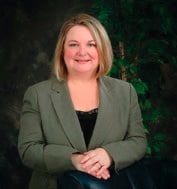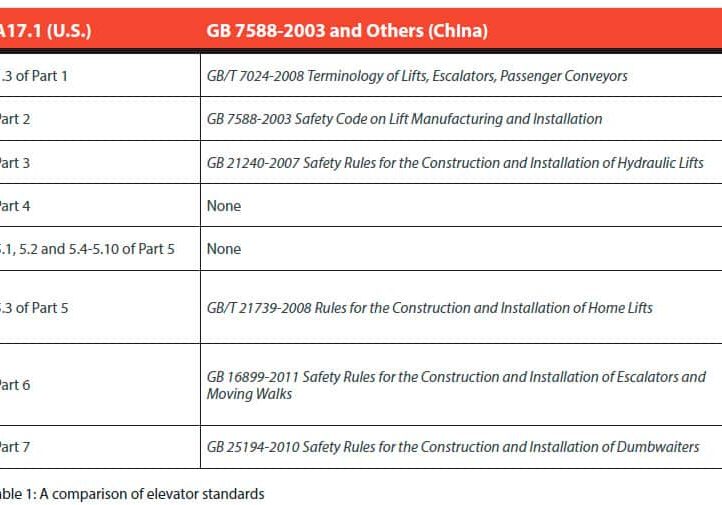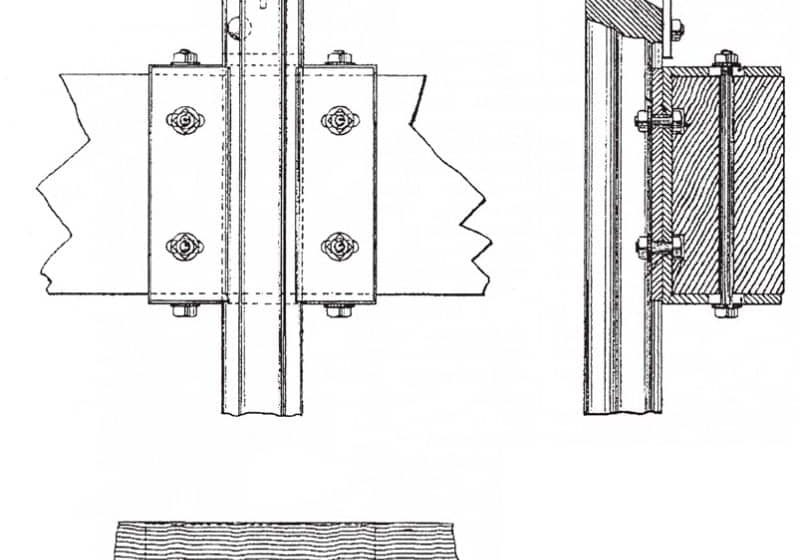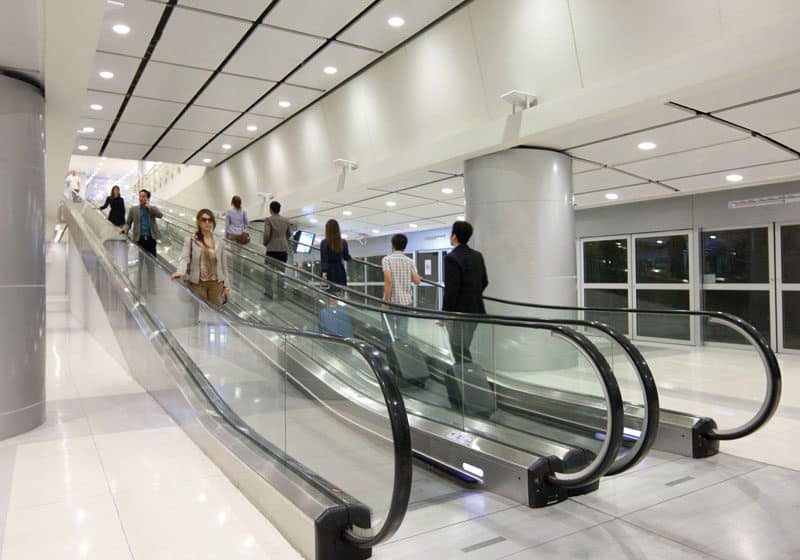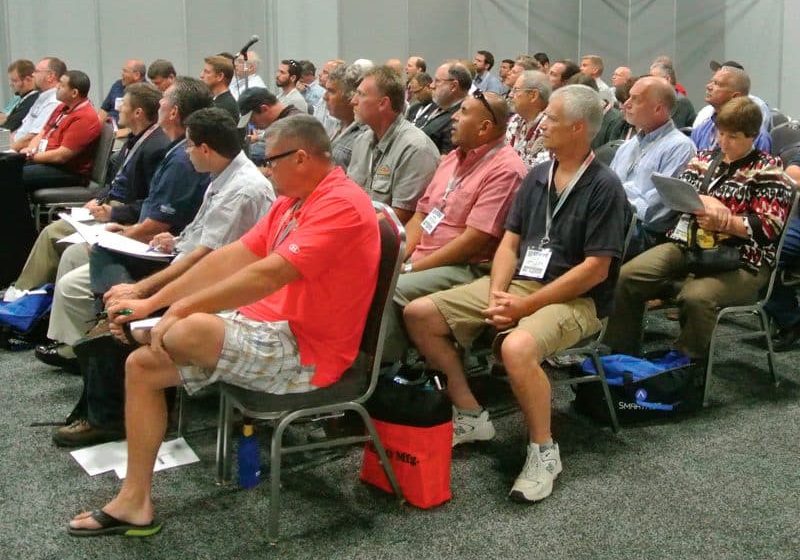Entrepreneur and Southerner Sheila Swett believes the industry she loves is on the upswing.
With an associate’s degree in Mechanical Technology from State Technical Institute at Memphis under her belt, Sheila Swett arrived at the airport to board a plane that would take her to her first post-college job — at a munitions factory in Albuquerque, New Mexico. A native of Memphis, Tennessee, and self-described Southern girl, she never made it onto the plane. The thought of living and working so far away, she said, chilled her to the bone. What happened right after that ended up sending Swett on an elevator-centric career path that would ultimately lead to her owning two businesses. She recalls that fateful day, when her mother was surprised to arrive home from work and find her daughter there:
“Her advice was, ‘If you don’t find a job by the time your father gets home, he will likely kill you.’ So I opened up the Yellow Pages to ‘Manufacturing’ and made it to ‘Dover,’ who kindly told me to come fill out an application. I drove to Horn Lake, Mississippi (a Memphis suburb), put in an application, was tested and interviewed on the spot and by the time I got back home, they had left a message with my mom to call. They offered me a job, my dad didn’t kill me, and the rest is history.”
Swett’s 13 years with Dover lasted until shortly before 1999, when Dover’s parent company sold its elevator businesses to ThyssenKrupp Elevator. Swett started out in the new installation mechanical design department, ultimately moving on to lead the mechanical design team for modernizations. This work took her all over the U.S. and allowed her to familiarize herself with an array of equipment and designs.
The experience she gained at Dover proved valuable when she launched her consultancy, Swett & Associates, in Memphis. In the early days, she said, she was often considered an elevator engineer rather than consultant. Smaller consultancies hired her in this capacity to compete with big elevator consulting companies, offering a service she called “boutique elevator engineering.” In 2005, Swett purchased Elevator Technical Services of Houston (where she also moved her consultancy) to pave the way for her son, Daniel, to enter the industry after earning an MS in Lift Engineering from the University of Northampton. Renamed SwettCorp, it continues today as a family business.
In addition to learning from Dover, Swett amassed approximately 130 hr. in continuing-education credits from Memphis State University in courses such as engineering, statistics, business and quality control. She has also learned much from colleagues, including former Dover boss Director of Modernization Gene Stiffler, whom Swett considers a mentor. She remembers that he told her she was an expert in her field. “He wasn’t kidding,” she says. “That statement both frightened and strengthened me, but it was the beginning of what I now have.”
Values instilled in her at Dover remain with Swett to this day and help guide her business practices. “I started and learned with Dover, which I still consider the best elevator company,” she says. Other companies she says she admires are Midwest Elevator Co. Inc of St. Louis; Diversified Elevator Services Co. of Millbrook, Alabama; and Humble Elevator Services Inc. of Humble, Texas.
Swett has never been one to cut corners, which at times, she says, put her in an unpopular minority. She remembers how challenging it was to start out in Houston as a woman in the industry. She says she refused to cave to pressure to perform inspections that involved little, if any, actual inspection:
“One of my employees explained to me that I would go broke if I actually required the tests to be performed and the inspections to be done, because few inspection companies did that, and the elevator companies and clients were accustomed to that level of performance. I took a deep breath and said, ‘Then I am going to go broke, because you are not to sign your name as an inspector in my employ unless you have performed the inspection and witnessed the testing as required by the laws of Texas and the [American Society of Mechanical Engineers (ASME)] code.”
Going by the rules has not always been easy, but Swett said she eventually convinced some mechanics and elevator companies that doing so was beneficial to them. She has found clients who also see the value in thorough inspection. Although the industry isn’t perfect, it has “improved tenfold” in the last decade in Texas, she says.
Swett believes clients value her ability to pinpoint problems. “I have excellent vision when it comes to elevators,” she says. “I understand the skeleton, the nuts and bolts, and can dig in to the heart of problems owners are having with their individual pieces of equipment, as well as their maintenance contracts and contractors.” Although, at times, she feels as if she is “battling giants with slingshots,” at the end of the day, she gets a sense of accomplishment from getting clients what they want, need and are willing to pay for.
Swett stays very involved in other aspects of her profession, as well. She is executive director of the International Association of Elevator Consultants; sits on the board of the Elevator Escalator Safety Foundation; is a founding member of Elevator U and is a member of NAESA International, ASME subcommittees and the National Elevator Industry, Inc.’s Architectural Standards committee. She regularly attends trade shows, including the International Association of Elevator Consultants Forum and the National Association of Elevator Contractors Annual Convention and Exposition. Doing so is a no brainer, she says, stating:
“For myself, the benefits are immediate. I meet extraordinary people, and I learn something new about elevators at every single event. For my company, the benefits take a little longer to be realized: I don’t think you get a new client every time you go to an event, but I do believe the networking and relationship building occurs when you dependably support the organizations. And, by dependably, I mean you are there every year, and people expect to see you walk the walk and talk the talk.”
Now is a more important time than ever to be involved, she says, since she believes the economy is on the upswing after nearly a decade of stagnancy. She says those who are tough will be ready for the challenges ahead, elaborating:
“I firmly believe the pendulum has swung, and we will have more work than it is possible to accomplish. Factories will be saturated, lead times will be crazy long, and manpower is already strapped. Only the strong survived the recession, but, hopefully, only the good will survive the bounce-back market.”
In her spare time, Swett enjoys reading John Grisham novels and the television show, “The Good Wife.” Family is important to her, and she said she is extremely proud of her children and stepchildren. Elevator roots run deep in the family. She is married to Jim Dirmeyer, an industry veteran who has worked for the same company for more than 35 years. Her oldest son, Daniel, works for SwettCorp, and younger son, Thomas, is a fresh law school graduate of the University of Alabama in Tuscaloosa, Alabama. She has two stepchildren: Nick, a doctor in Tupelo, Mississippi, and Amy, a nurse in Colorado Springs, Colorado, who is the parent of the couple’s only grandchild, Roxy.
Like many Southerners, Swett takes cooking and eating very seriously, although these days, she says she finds little time or inclination to do it, since all the children are out of the “nest,” and her career keeps her running. When she does have downtime, she enjoys spending some of it at the family vacation home on Lake Travis near Austin, Texas. “That is my wind-down spot,” she says.
Swett has a soft spot in her heart for dogs, so much so that her husband implemented a rule that any “fur baby” she rescues must be at least 600 miles away so they don’t end up with dozens of dogs. “Even that rule didn’t stop me from escorting a puppy on a flight 1,000 miles to its new ‘furever’ home,” she admits. Sheila and Jim have two dogs, in addition to a “grand-dog,” all of which are rescues.
Swett is young and full of energy, and says she has no plans to retire anytime soon. When and if she does, however, it will probably involve “a four-day workweek, instead of a six-day one.”
Get more of Elevator World. Sign up for our free e-newsletter.
